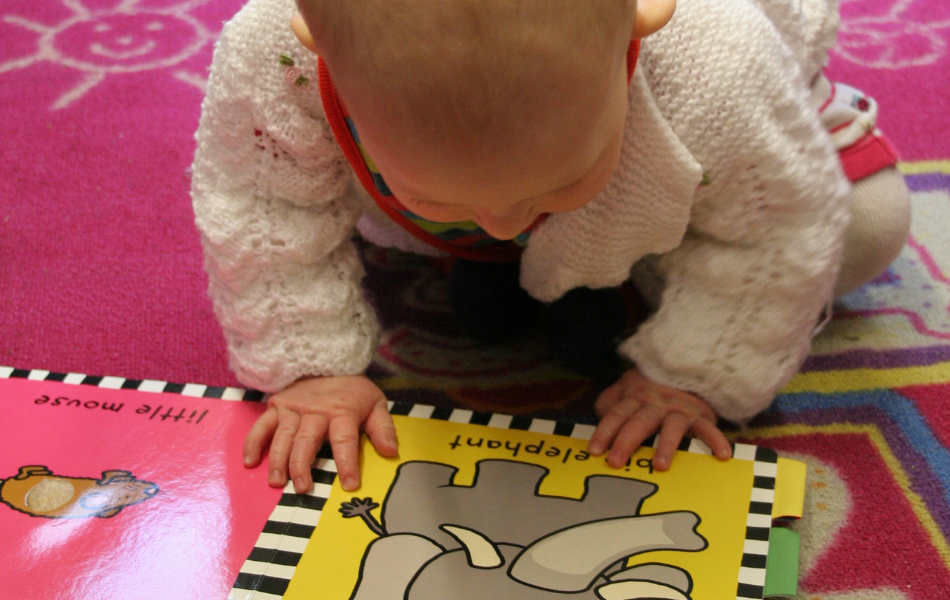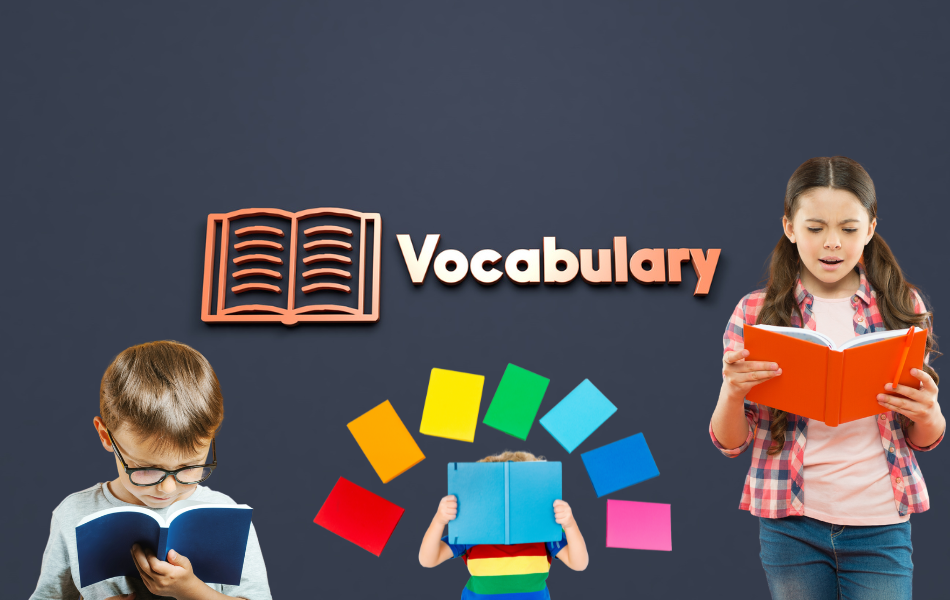Unlocking children’s literacy: Insights from psychological studies reveal the keys to fostering a lifelong love for reading and expression.
As an experienced content creator specializing in engaging blog posts, I understand the importance of captivating readers with unique and interesting content. In this article, we will delve into the fascinating insights derived from psychological studies on children’s literacy. Literacy and emotional literacy are strongly linked.
Reading bedtime stories to preschoolers has been found to play a crucial role in developing early literacy skills. By engaging children with lively recitations and open-ended questions, we can enhance their comprehension, vocabulary, and overall interest in reading. However, it is particularly vital to consider low-income children who often face challenges in language development, sound awareness, and letter recognition.
By coaching parents and teachers on effective questioning techniques and emphasizing rhyming and word-following, we can significantly improve pre-reading skills among low-income preschoolers. Additionally, videotaping and critiquing teachers’ reading techniques can help them refine and enhance their strategies. By asking open-ended questions and making connections to children’s surroundings, we can expand their vocabularies and foster a love for reading.
Interventions like EMERGE have shown promising results in improving letter naming, vocabulary word knowledge, print recognition, and book comprehension among low-income preschoolers. Parents can also contribute by choosing books with print-rich details, such as dialogue bubbles or words written in crayons, to draw children’s attention to words and letters.
Furthermore, teachers who accentuate print details while reading can help children become better readers and spellers, ultimately facilitating their overall literacy development.
It is crucial to recognize that reading and writing are closely intertwined skills that rely on the same cognitive processes. Research suggests that children who read frequently tend to be better writers and more able to express their emotions. Reading helps children develop their vocabulary, critical thinking skills, and ability to analyze and synthesize information. It exposes them to different ideas and perspectives, making them more thoughtful and analytical writers. Moreover, reading can serve as a source of inspiration and ideas for writing. Therefore, encouraging children to read is a valuable strategy to nurture their writing skills.
In the following sections, we will explore these insights in more detail, providing practical tips and strategies for parents and educators to enhance children’s literacy and writing abilities. Stay tuned for an engaging and informative journey into the world of children’s literacy!
Key Takeaways

- Reading bedtime stories to preschoolers is crucial for developing early literacy skills, including comprehension, vocabulary, and interest.
- Coaching parents and teachers to ask questions and emphasize rhyming and word-following can improve pre-reading skills among low-income preschoolers.
- Videotaping and critiquing teachers’ reading techniques can help them improve and refine their strategies.
- Developing knowledge about print and emphasizing print details while reading can help children become better readers and spellers.
- Reading frequently not only improves children’s writing skills but also helps develop critical thinking, analytical skills, and the ability to synthesize information.
Importance of Reading Bedtime Stories to Preschoolers

Reading bedtime stories to preschoolers is not only a cherished tradition but also an important activity for their early literacy development. Numerous psychological studies have highlighted the benefits of this practice in enhancing children’s language skills, comprehension abilities, and overall interest in reading. In this section, we will explore the insights gained from these studies and understand why reading bedtime stories is crucial for preschoolers.
Bedtime stories aid in early literacy development
Research has shown that engaging children with lively and enthusiastic recitations, as well as asking open-ended questions while reading, can significantly contribute to their comprehension, vocabulary, and interest in books. This is particularly significant for low-income children, who often face challenges in their language development, sound awareness, letter recognition, and vocabulary compared to their peers.
To address these disparities, interventions like EMERGE have been developed, focusing on coaching parents and teachers on effective reading techniques. By teaching them how to ask questions, emphasize rhyming, and encourage word-following, these interventions have successfully improved pre-reading skills among low-income preschoolers. Additionally, videotaping and critiquing teachers’ reading techniques have proven to be valuable tools for refining and enhancing their strategies.
Print-rich details and the connection to reading and writing
Parents and teachers can play a crucial role in fostering early literacy skills by selecting books with print-rich details, such as dialogue bubbles or words written in crayons. These features draw children’s attention to words and letters, helping them develop their knowledge about print, which is essential for future word-reading skills.
Moreover, reading and writing are closely related skills that rely on the same cognitive processes. Research suggests that children who read often tend to be better writers. Reading helps children develop their vocabulary, which is vital for good writing. It also aids in the development of critical thinking skills, as reading exposes children to different ideas and perspectives, making them more analytical and thoughtful writers.
The impact of reading on writing skills
Reading not only enhances vocabulary and critical thinking but also helps children become more adept at analyzing and synthesizing information, which are crucial skills for writing. By exposing children to various writing styles, genres, and authors, reading serves as a valuable source of inspiration and ideas for their own writing endeavors.
Encouraging children to read from an early age can have a significant impact on their writing skills. It nurtures their creativity, improves their sentence structure, and enhances their ability to express ideas effectively. Additionally, reading helps children develop a love for language and storytelling, which can fuel their passion for writing throughout their lives.
In conclusion, the importance of reading bedtime stories to preschoolers cannot be overstated. Psychological studies have consistently highlighted the positive impact of this practice on children’s early literacy development. By engaging children with lively recitations, asking open-ended questions, and emphasizing print-rich details, parents and teachers can foster a love for reading and writing in young minds, setting them on a path toward lifelong learning and creativity.
Citation: Insights from Psychological Studies on Children Literacy
Effective Strategies for Engaging Children in Reading

Lively and Enthusiastic Recitations Help with Comprehension, Vocabulary, and Interest
When it comes to engaging children in reading, the way we read to them can make a significant difference. Lively and enthusiastic recitations can captivate children’s attention and enhance their overall reading experience. By infusing energy and enthusiasm into our storytelling, we can create a more immersive and exciting environment for children to explore the world of books.
Psychological studies have shown that lively and enthusiastic recitations have numerous benefits for children’s literacy development. Firstly, it helps improve comprehension skills. When we read with excitement and passion, we are more likely to emphasize important details, use expressive intonation, and convey emotions effectively. These elements not only make the story more engaging but also enable children to better understand the plot, characters, and themes.
Secondly, lively recitations contribute to expanding children’s vocabulary. By using different tones of voice, emphasizing certain words, and adding expressive gestures, we can help children grasp the meaning and context of new words. This exposure to a rich and varied vocabulary enhances their language skills and enables them to express themselves more effectively.
Lastly, enthusiastic recitations foster interest and curiosity in children. When we demonstrate our own love for reading through our animated storytelling, children are more likely to develop a positive attitude toward books. They become eager to explore more stories, ask questions, and engage in discussions. This curiosity-driven approach nurtures a lifelong love for reading and learning.
Open-Ended Questions Enhance Children’s Understanding
In addition to lively recitations, incorporating open-ended questions while reading to children can further enhance their understanding and comprehension. Open-ended questions are questions that require more than a simple yes or no answer and encourage children to think critically and express their thoughts.
Research has shown that asking open-ended questions during reading sessions can expand children’s vocabulary significantly. By encouraging them to reflect on the story, make predictions, and draw connections to their own experiences, we help them develop a deeper understanding of the content. Furthermore, open-ended questions promote critical thinking skills, as children are prompted to analyze the story, consider different perspectives, and express their opinions.
By actively engaging children through open-ended questions, we create a dynamic reading experience that goes beyond simply decoding words on a page. This interactive approach fosters a sense of ownership and involvement in the reading process, making it more enjoyable and impactful for children.
Insights from Psychological Studies on Children Literacy
According to psychological studies on children’s literacy, there are several key insights that can help us effectively engage children in reading:
- Low-income children often have lower vocabularies, language development, sound awareness, and letter recognition abilities compared to their peers.
- Coaching parents and teachers on how to ask questions and emphasize rhyming and word-following can improve pre-reading skills among low-income preschoolers.
- Videotaping and critiquing teachers’ reading techniques can help them improve and refine their strategies.
- Interventions like EMERGE have shown promising results in improving letter naming, vocabulary word knowledge, print recognition, and book comprehension among low-income preschoolers.
- Parents should choose books with print-rich details, such as dialogue bubbles or words written in crayons, to draw children’s attention to words and letters.
- Teachers who accentuate print details while reading can help children become better readers and spellers.
- Developing knowledge about print is important for developing word-reading skills in the future.
- Reading and writing are closely related skills that rely on the same cognitive processes.
- Research suggests that children who read often tend to be better writers.
- Reading helps children develop their vocabulary, which is important for good writing.
- Reading can help children develop critical thinking skills, which are essential for good writing.
- Reading exposes children to different ideas and perspectives, making them more analytical and thoughtful writers.
- Reading helps children become more adept at analyzing and synthesizing information, important skills for writing.
- Reading can serve as a source of inspiration and ideas for writing.
- Encouraging children to read can help them develop their writing skills.
For more information on the psychological studies on children’s literacy, you can refer to the APA article.
Incorporating these insights into our reading practices can have a profound impact on children’s literacy development. By utilizing lively and enthusiastic recitations, asking open-ended questions, and implementing evidence-based strategies, we can create a nurturing environment that fosters a love for reading and empowers children to become confident and proficient readers and writers.
Expanding Vocabularies Through Reading

As a writer and content creator, I have always believed in the power of reading to expand our vocabularies, understand our emotions, and enhance our language skills. And it turns out, psychological studies on children’s literacy have confirmed this belief. These studies provide valuable insights into how reading can significantly impact children’s vocabulary development and overall language proficiency. So, let’s dive into some of the key findings from these studies and explore how we can apply them to help children expand their vocabularies through reading.
The Importance of Open-ended Questions and Connections to Children’s Surroundings
One of the crucial factors identified by the research is the use of open-ended questions and making connections to children’s surroundings while reading to them. Engaging children with lively and enthusiastic recitations, along with thought-provoking questions, not only promotes their comprehension but also enhances their vocabulary and piques their interest.
Addressing the Vocabulary Gap in Low-Income Children
Studies have revealed that low-income children often have lower vocabularies, language development, sound awareness, and letter recognition abilities compared to their peers. However, interventions such as the EMERGE program have shown promising results in improving pre-reading skills among low-income preschoolers. By coaching parents and teachers on how to ask questions, emphasize rhyming, and follow words in books, we can bridge the vocabulary gap and enhance the language skills of these children.
Enhancing Reading Techniques for Better Vocabulary Development
Teachers play a vital role in fostering children’s literacy skills. Videotaping and critiquing teachers’ reading techniques can help them improve and refine their strategies. By accentuating print details while reading, such as dialogue bubbles or words written in crayons, teachers can draw children’s attention to words and letters, thereby improving their reading and spelling abilities.
The Connection Between Reading and Writing
Reading and writing are closely intertwined skills that rely on the same cognitive processes. Research suggests that children who read often tend to be better writers. Reading helps children develop their vocabulary, which is crucial for good writing. Moreover, reading exposes children to different ideas and perspectives, making them more analytical and thoughtful writers.
It also helps them become adept at analyzing and synthesizing information, which are essential skills for writing. Additionally, reading can serve as a source of inspiration and ideas for writing. Therefore, encouraging children to read can significantly contribute to the development of their writing skills.
In conclusion, the insights from psychological studies on children’s literacy affirm the significant role that reading plays in expanding vocabularies. By asking open-ended questions, making connections to children’s surroundings, and emphasizing print details, we can enhance their language skills and bridge the vocabulary gap. Moreover, reading not only improves writing skills but also fosters critical thinking, analytical abilities, and creativity. So, let’s encourage children to embark on the wonderful journey of reading and witness the transformative power it holds for their language development.
Reference: Insights from Psychological Studies on Children Literacy
The Relationship Between Reading and Writing

Reading and writing are closely intertwined skills that rely on the same cognitive processes. As a writer, I often find that reading enhances my writing abilities and provides valuable insights. In this section, we will explore the various ways in which reading can positively impact writing skills.
Reading often leads to better writing skills
Research suggests that children who read frequently tend to be better writers. When we read, we are exposed to different writing styles, genres, and perspectives. This exposure helps us develop a deeper understanding of language and storytelling techniques, which we can then apply in our own writing. As I reflect on my own writing journey, I can confidently say that the books I have read have shaped my writing style and improved my ability to communicate effectively.
Reading develops vocabulary, critical thinking, and analytical skills for writing
One of the key benefits of reading is the development of vocabulary. When we read a wide range of books, we encounter new words and phrases that expand our vocabulary repertoire. A rich vocabulary is essential for good writing, as it allows us to choose the most precise and impactful words to convey our thoughts. Additionally, reading exposes us to different writing styles and genres, which helps us develop a critical eye for language and storytelling techniques. This critical thinking ability and analytical mindset are crucial for crafting compelling and well-structured pieces of writing.
Reading provides inspiration and ideas for writing
Have you ever read a book or article that sparked your imagination and made you want to pick up a pen and start writing? Reading can serve as a wellspring of inspiration and ideas for our own writing endeavors. When we immerse ourselves in the works of other writers, we are exposed to their unique perspectives, experiences, and creative approaches. This exposure can ignite our own creativity and prompt us to explore new topics, experiment with different writing styles, or delve deeper into a specific genre. As a writer, I often find that reading fuels my creativity and helps me overcome writer’s block.
In conclusion, reading plays a vital role in the development of writing skills. It enhances vocabulary, critical thinking, and analytical abilities, while also providing inspiration and ideas for our own writing. As we continue to explore the intricate relationship between reading and writing, let us remember the words of Neil Gaiman: “The best advice I can give on this is, once you have written the story, go back and take out half the words – it will still be long enough.”
Frequently Asked Questions

1. Why is reading bedtime stories to preschoolers important?
Reading bedtime stories to preschoolers is important for developing early literacy. Engaging children with lively, enthusiastic recitations and open-ended questions while reading is crucial for their comprehension, vocabulary, and interest.
2. How can teachers improve their reading techniques?
Videotaping and critiquing teachers’ reading techniques can help them improve and refine their strategies. Asking open-ended questions and making connections to children’s surroundings can expand their vocabularies significantly.
3. What should parents consider when choosing books for their children?
Parents should choose books with print-rich details, such as dialogue bubbles or words written in crayons, to draw children’s attention to words and letters.
4. How can teachers help children become better readers and spellers?
Teachers who accentuate print details while reading can help children become better readers and spellers. Developing knowledge about print is important for developing word-reading skills in the future.
5. How are reading and writing related?
Reading and writing are closely related skills that rely on the same cognitive processes. Research suggests that children who read often tend to be better writers. Reading helps children develop their vocabulary, which is important for good writing.
6. How does reading help in developing critical thinking skills?
Reading can help children develop critical thinking skills, which are essential for good writing. It exposes children to different ideas and perspectives, making them more analytical and thoughtful writers. Reading also helps children become more adept at analyzing and synthesizing information, important skills for writing.
7. Can reading serve as a source of inspiration for writing?
Yes, reading can serve as a source of inspiration and ideas for writing. Encouraging children to read can help them develop their writing skills.
Footnotes
- APA Monitor. (2012, October). Reading to children: A Head Start in life. American Psychological Association. Link to citation ↩
Recent Posts
Explore permissive parenting’s impact on emotional development, its strengths, hidden risks, and how to build loving boundaries that raise resilient children. Every parent wants a peaceful home....
Discover how the Commander Style of authoritarian parenting shapes emotional development, and learn research-based ways to balance firm structure with empathy. Every child’s emotional...

